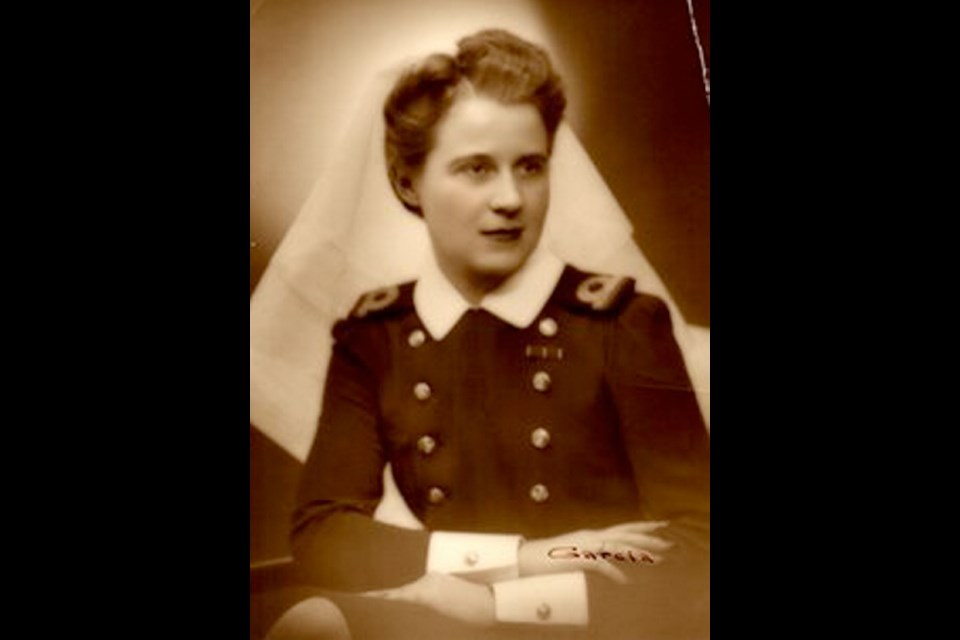Margaret Brooke clung to the ropes of a capsized lifeboat with one arm and a fellow nurse with the other after their ferry was torpedoed by a German submarine off the coast of Newfoundland in the midst of the Second World War.
The Victoria resident’s heroic efforts will be honoured with a new Royal Canadian Navy ship that will be named after her, the federal government announced Monday. Her Majesty’s Canadian Ship Margaret Brooke will be built this fall, part of a fleet of six Arctic and Offshore Patrol Ships named after naval heroes.
The ships are part of the National Shipbuilding Procurement Strategy — a $33-billion project to build 29 ships for the navy and coast guard over the next 20 to 30 years.
“It is, in fact, a privilege for our country that Margaret Brooke will lend her name to one of our naval ships, as her courage and self-sacrifice have inspired, and will continue to inspire, generations of Canadian naval personnel for years to come,” said Defence Minister Jason Kenney.
Brooke learned about the honour via a phone call from Kenney to her Victoria home on April 10, which also happened to be her 100th birthday. The next day, Commodore Bob Auchterlonie, commander of Canadian Fleet Pacific, visited Brooke to congratulate her and wish her a happy birthday in person.
“I am just overwhelmed,” Brooke said. “The navy just doesn’t name ships after people. It’s quite surprising.”
She said this is the first contact she’s had with the navy since she left the service about 53 years ago and that she has always been very proud of her years of service. “I try not to think of that day too often, though. It’s too hard.”
Brooke, originally from Saskatchewan, was a navy nurse (known as the Canadian Nursing Sisters at the time) during the Battle of the Atlantic. On Oct. 14, 1942, Brooke and her navy sister Agnes Wilkie were aboard the ferry SS Caribou when it was torpedoed during a crossing of the Cabot Strait off Newfoundland.
The ship sank in five minutes, the navy said, leaving Brooke grasping onto the ropes of an overturned lifeboat in the frigid ocean. She used her other hand to hold on to Wilkie for more than two hours. But the freezing water was too much for her colleague. Wilkie died, making her the only Canadian nurse killed due to enemy action in the war.
Brooke was awarded membership in the Order of the British Empire for her efforts to save Wilkie. She is the only nursing sister to have this honour.
She continued to serve in the navy until 1962, rising to the rank of lieutenant-commander. After leaving the navy, she earned her doctorate in paleontology and authored numerous research projects.
Brooke retired to Victoria in 1986.



